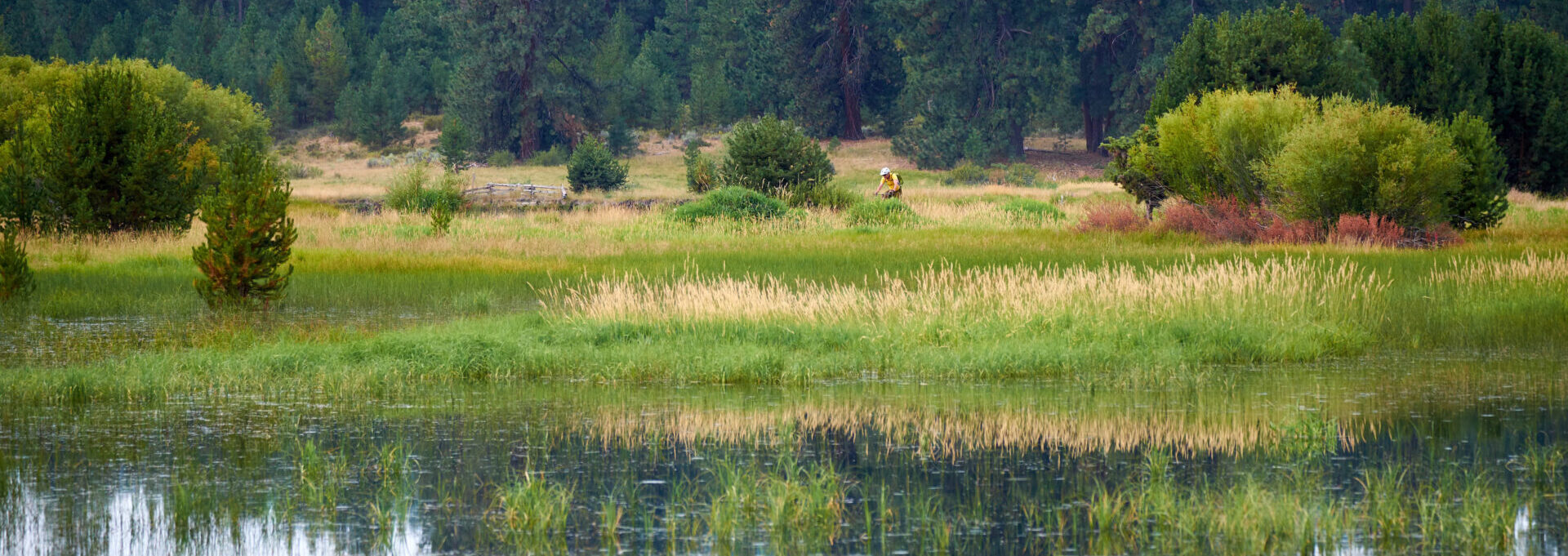We are all Stewards of the River . . .
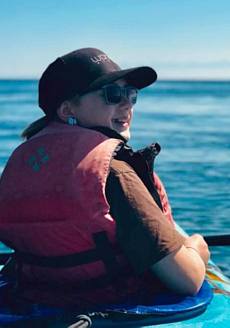
Purge the Plastic & Lash your Trash!
by Julia Alvarado and Ella Kerr, age 12
When I was younger, I remember seeing trash everywhere in my community. As I grew up, I learned that plastic never goes away and eventually ends up in our rivers and ocean. There is one way to stop it and that is working together as a community. If we all stopped using single-use plastic, they wouldn’t make it and then less plastic would end up in our rivers. Did you know one garbage truck of plastic is dumped into the ocean every minute! When you’re out on our rivers and lakes, please lash your trash and keep it out of the water. I hope you will take part and save our rivers and oceans.
Musing on a Kingfisher
by Nancy Boever, birder
I walk in search of a belted kingfisher and reflect upon how birding is changing my relationship with the natural world around me. Birding taught me to pause, listen, to look
around me and to bear witness to wild places. As I search, I wonder, “How can we share space with and be welcoming to our feathered neighbors?” The kingfisher’s dependence upon riparian
ecosystems begs us to support land management practices that protect, restore, and heal habitat that has been injured. We are in awe of the power of Benham Falls roaring through the canyon. But look a little closer into the smaller mysteries that surround us. Pause a moment…and nature will reveal its most sacred secrets.
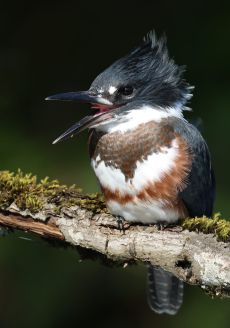
Photo by Charles Wheeler

Beavers at Work
by Pamela Adams, Beaverworks.org
Imagine you’re a beaver (sorry, ducks!) You'll need a river. And food. You’ll need a safe place to call home. While you’re at work, busy as beaver as one of nature’s river engineers, you’ll be creating homes for other critters, from fish to bugs to birds. The channels you dig will provide important refugia for tiny fish and for frogs and other amphibians. You might also get into trouble with your human neighbors who don’t want you cutting down trees or damming their culverts. If that happens, they can call the Beaver Response Team for help. Coz everybody needs a safe place to call home.
Jodi Knows Bullfrogs
Jodi Wilmoth knows bullfrogs. She spends her summer nights catching and removing them from the river. Bullfrogs were brought to Oregon more than a century ago, and they like it here. Like many other introduced species, they outcompete the natives. Bullfrogs can ravage the habitat of Oregon spotted frog and other native amphibians. Read more about Jodi and her bullfrog work here.
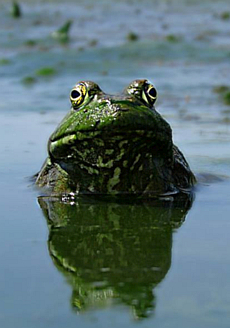
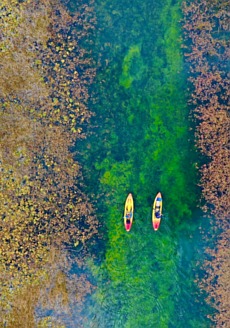
Tread Lightly
by Dave Nissen, Owner, Wanderlust Tours
More and more of us are living in towns and cities, and more and more of us are heading outdoors to recreate and seek rejuvenation in the natural world. Through nature-based experiences, we can gain a deeper understanding and appreciation of the gifts that nature showers upon us. We can strive to protect them. The Deschutes River is a magnet for recreation. It’s a source of fun, but it’s also home for a multitude of species. As we renew ourselves, we might inadvertently be disturbing their habitat. We encourage everyone to tread lightly, TREAD REALLY LIGHTLY, as we recreate on our rivers and lakes.
Got Carrot Cake?
If you like to eat, then thank a farmer. From the family unit to the global commons, we are connected by food and farmers. Jefferson County grows 55% of America’s hybrid carrot seed. That seed goes into packets for backyard gardens; it goes into the fields that supply farmers markets and supermarkets. Our urban and rural lives are intertwined. Who are Central Oregon
farmers? They are parents and grandparents. They fish and recreate on rivers. They are stewards of the land. They are our neighbors.
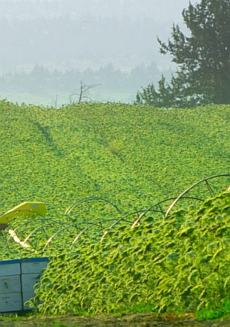
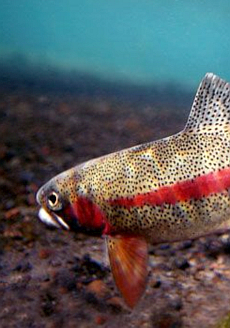
A Fish’s World View
by Jodi Wilmoth, Deschutes Redbands Chapter of Trout Unlimited
Have you ever snorkeled a river? It’s an amazing experience to see fish doing their normal fishy things: searching for large bugs to eat, ducking under a fallen log for shade and protection. To be submerged in a fish’s world gives you a view into another realm, quiet and loud at the same time. It gives you perspective of what the fish are experiencing, whether that be a muddy, cloudy river or a clear, cold environment. If we put ourselves in someone else’s shoes (or fins), we get a hint of what their life is like, and what we can do to understand and treasure it.
